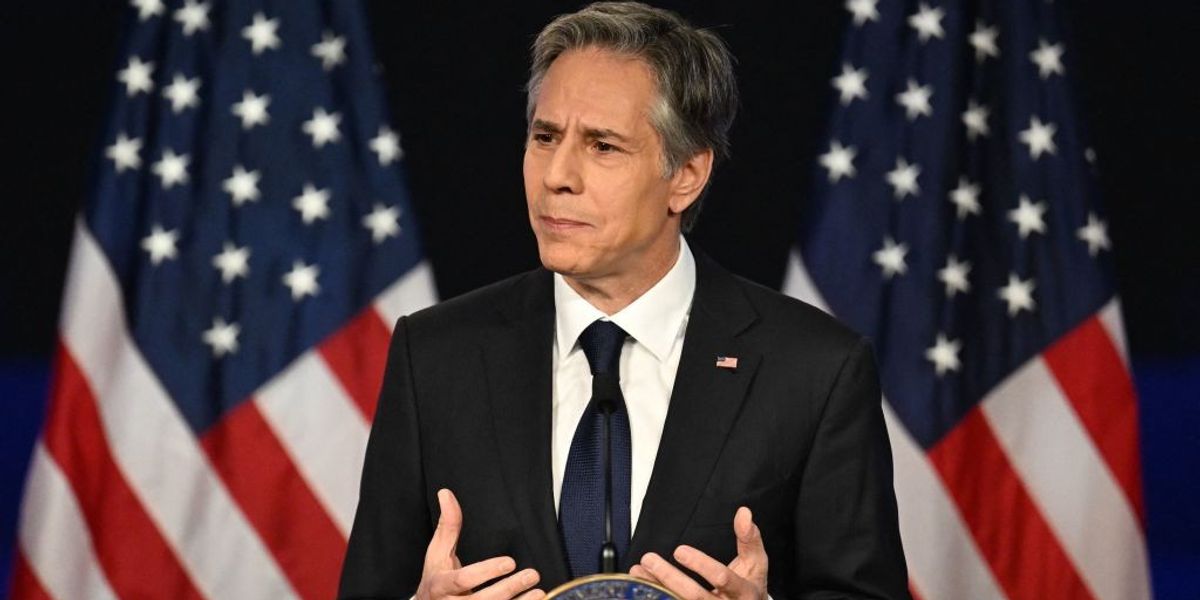There is nothing more dangerous than a government of the many controlled by the few.
— Lawrence Lessig, Harvard law professor
 It is easy to be distracted right now by the bread and circus politics that have dominated the news headlines lately, but don’t be distracted.
It is easy to be distracted right now by the bread and circus politics that have dominated the news headlines lately, but don’t be distracted.
Don’t be fooled, not even a little.
We’re being subjected to the oldest con game in the books, the magician’s sleight of hand that keeps you focused on the shell game in front of you while your wallet is being picked clean by ruffians in your midst.
This is how tyranny rises and freedom falls.
What characterizes American government today is not so much dysfunctional politics as it is ruthlessly contrived governance carried out behind the entertaining, distracting and disingenuous curtain of political theater. And what political theater it is, diabolically Shakespearean at times, full of sound and fury, yet in the end, signifying nothing.
We are being ruled by a government of scoundrels, spies, thugs, thieves, gangsters, ruffians, rapists, extortionists, bounty hunters, battle-ready warriors and cold-blooded killers who communicate using a language of force and oppression.
The U.S. government now poses the greatest threat to our freedoms.
More than terrorism, more than domestic extremism, more than gun violence and organized crime, even more than the perceived threat posed by any single politician, the U.S. government remains a greater menace to the life, liberty and property of its citizens than any of the so-called dangers from which the government claims to protect us.
No matter who has occupied the White House in recent years, the Deep State has succeeded in keeping the citizenry divided and at each other’s throats.
After all, as long as we’re busy fighting each other, we’ll never manage to present a unified front against tyranny in any form.
Unfortunately, what we are facing is tyranny in every form.
The facts speak for themselves.
We’re being robbed blind by a government of thieves. Americans no longer have any real protection against government agents empowered to seize private property at will. For instance, police agencies under the guise of asset forfeiture laws are taking Americans’ personal property based on little more than a suspicion of criminal activity and keeping it for their own profit and gain. In one case, police seized more than $17,000 in cash from two sisters who were trying to start a dog breeding business. Despite finding no evidence of wrongdoing, police held onto the money for months. Homeowners are losing their homes over unpaid property taxes (as little as $2300 owed) that amount to a fraction of what they have invested in their homes. And then there’s the Drug Enforcement Agency, which has been searching train and airline passengers and pocketing their cash, without ever charging them with a crime.
We’re being taken advantage of by a government of scoundrels, idiots and cowards. Journalist H.L. Mencken calculated that “Congress consists of one-third, more or less, scoundrels; two-thirds, more or less, idiots; and three-thirds, more or less, poltroons.” By and large, Americans seem to agree. When you’ve got government representatives who spend a large chunk of their work hours fundraising, being feted by lobbyists, shuffling through a lucrative revolving door between public service and lobbying, and making themselves available to anyone with enough money to secure access to a congressional office, you’re in the clutches of a corrupt oligarchy. Mind you, these same elected officials rarely read the legislation they’re enacting, nor do they seem capable of enacting much legislation that actually helps the plight of the American citizen. More often than not, the legislation lands the citizenry in worse straits.
We’re being locked up by a government of greedy jailers. We have become a carceral state, spending three times more on our prisons than on our schools and imprisoning close to a quarter of the world’s prisoners, despite the fact that crime is at an all-time low and the U.S. makes up only 5% of the world’s population. The rise of overcriminalization and profit-driven private prisons provides even greater incentives for locking up American citizens for such non-violent “crimes” as having an overgrown lawn. As the Boston Review points out, “America’s contemporary system of policing, courts, imprisonment, and parole … makes money through asset forfeiture, lucrative public contracts from private service providers, and by directly extracting revenue and unpaid labor from populations of color and the poor. In states and municipalities throughout the country, the criminal justice system defrays costs by forcing prisoners and their families to pay for punishment. It also allows private service providers to charge outrageous fees for everyday needs such as telephone calls. As a result people facing even minor criminal charges can easily find themselves trapped in a self-perpetuating cycle of debt, criminalization, and incarceration.”
We’re being spied on by a government of Peeping Toms. The government, along with its corporate partners, is watching everything you do, reading everything you write, listening to everything you say, and monitoring everything you spend. Omnipresent surveillance is paving the way for government programs that profile citizens, document their behavior and attempt to predict what they might do in the future, whether it’s what they might buy, what politician they might support, or what kinds of crimes they might commit. The impact of this far-reaching surveillance, according to Psychology Today, is “reduced trust, increased conformity, and even diminished civic participation.” As technology analyst Jillian C. York concludes, “Mass surveillance without due process—whether undertaken by the government of Bahrain, Russia, the US, or anywhere in between—threatens to stifle and smother that dissent, leaving in its wake a populace cowed by fear.”
We’re being ravaged by a government of ruffians, rapists and killers. It’s not just the police shootings of unarmed citizens that are worrisome. It’s the SWAT team raids gone wrong—more than 80,000 annually—that are leaving innocent citizens wounded, children terrorized and family pets killed. It’s the roadside strip searches—in some cases, cavity searches of men and women alike carried out in full view of the public—in pursuit of drugs that are never found. It’s the potentially lethal—and unwarranted—use of so-called “nonlethal” weapons such as tasers on children for “mouthing off to a police officer. For trying to run from the principal’s office. For, at the age of 12, getting into a fight with another girl.”
We’re being forced to surrender our freedoms—and those of our children—to a government of extortionists, money launderers and professional pirates. The American people have repeatedly been sold a bill of goods about how the government needs more money, more expansive powers, and more secrecy (secret courts, secret budgets, secret military campaigns, secret surveillance) in order to keep us safe. Under the guise of fighting its wars on terror, drugs and now domestic extremism, the government has spent billions in taxpayer dollars on endless wars that have not ended terrorism but merely sown the seeds of blowback, surveillance programs that have caught few terrorists while subjecting all Americans to a surveillance society, and militarized police that have done little to decrease crime while turning communities into warzones. Not surprisingly, the primary ones to benefit from these government exercises in legal money laundering have been the corporations, lobbyists and politicians who inflict them on a trusting public.
We’re being held at gunpoint by a government of soldiers: a standing army. As if it weren’t enough that the American military empire stretches around the globe (and continues to leech much-needed resources from the American economy), the U.S. government is creating its own standing army of militarized police and teams of weaponized, federal bureaucrats. These civilian employees are being armed to the hilt with guns, ammunition and military-style equipment; authorized to make arrests; and trained in military tactics. Among the agencies being supplied with night-vision equipment, body armor, hollow-point bullets, shotguns, drones, assault rifles and LP gas cannons are the Smithsonian, U.S. Mint, Health and Human Services, IRS, FDA, Small Business Administration, Social Security Administration, National Oceanic and Atmospheric Administration, Education Department, Energy Department, Bureau of Engraving and Printing and an assortment of public universities. There are now reportedly more bureaucratic (non-military) government civilians armed with high-tech, deadly weapons than U.S. Marines. That doesn’t even begin to touch on the government’s arsenal, the transformation of local police into extensions of the military, and the speed with which the nation could be locked down under martial law depending on the circumstances.
Whatever else it may be—a danger, a menace, a threat—the U.S. government is certainly no friend to freedom.
To our detriment, the criminal class that Mark Twain mockingly referred to as Congress has since expanded to include every government agency that feeds off the carcass of our once-constitutional republic.
The government and its cohorts have conspired to ensure that the only real recourse the American people have to hold the government accountable or express their displeasure with the government is through voting, which is no real recourse at all.
Consider it: the penalties for civil disobedience, whistleblowing and rebellion are severe. If you refuse to pay taxes for government programs you believe to be immoral or illegal, you will go to jail. If you attempt to overthrow the government—or any agency thereof—because you believe it has overstepped its reach, you will go to jail. If you attempt to blow the whistle on government misconduct, you will go to jail. In some circumstances, if you even attempt to approach your elected representative to voice your discontent, you can be arrested and jailed.
You cannot have a republican form of government—nor a democratic one, for that matter—when the government views itself as superior to the citizenry, when it no longer operates for the benefit of the people, when the people are no longer able to peacefully reform their government, when government officials cease to act like public servants, when elected officials no longer represent the will of the people, when the government routinely violates the rights of the people and perpetrates more violence against the citizenry than the criminal class, when government spending is unaccountable and unaccounted for, when the judiciary act as courts of order rather than justice, and when the government is no longer bound by the laws of the Constitution.
We no longer have a government “of the people, by the people and for the people.”
Rather, what we have is a government of wolves.
For too long, the American people have obeyed the government’s dictates, no matter now unjust.
We have paid its taxes, penalties and fines, no matter how outrageous. We have tolerated its indignities, insults and abuses, no matter how egregious. We have turned a blind eye to its indiscretions and incompetence, no matter how imprudent. We have held our silence in the face of its lawlessness, licentiousness and corruption, no matter how illicit.
How long we will continue to suffer depends on how much we’re willing to give up for the sake of freedom.
For the moment, the American people seem content to sit back and watch the reality TV programming that passes for politics today. It’s the modern-day equivalent of bread and circuses, a carefully calibrated exercise in how to manipulate, polarize, propagandize and control a population.
As French philosopher Etienne de La Boétie observed half a millennium ago:
“Plays, farces, spectacles, gladiators, strange beasts, medals, pictures, and other such opiates, these were for ancient peoples the bait toward slavery, the price of their liberty, the instruments of tyranny. By these practices and enticements the ancient dictators so successfully lulled their subjects under the yoke, that the stupefied peoples, fascinated by the pastimes and vain pleasures flashed before their eyes, learned subservience as naively, but not so creditably, as little children learn to read by looking at bright picture books.”
The bait towards slavery. The price of liberty. The instruments of tyranny.
Yes, that sounds about right.
As I make clear in my book Battlefield America: The War on the American People and in its fictional counterpart The Erik Blair Diaries, “We the people” have learned only too well how to be slaves.
The post
Circus Politics Are Intended to Distract Us first appeared on
Dissident Voice.
This post was originally published on Dissident Voice.


 .
.














